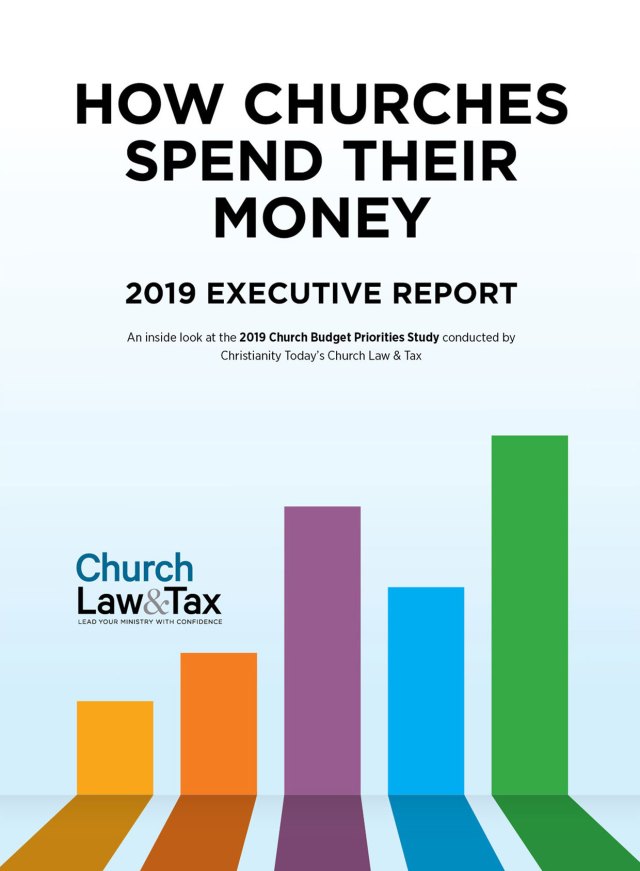Compensating clergy and church staff involves unique tax considerations that many church leaders—and even some advisors—don’t fully understand. This article reviews three key components of a church compensation plan:
- Salary
- Housing Allowance
- Equity Allowance
Let’s break down the essential points church leaders need to know when building fair, compliant compensation packages.
1. Salary: Basic but Complex
Two Key Issues:
- How much to pay
- How to use salary reduction agreements
A. Determining Reasonable Salary
Salaries are typically set by a church’s governing body. Legally, churches may pay any amount—unless the IRS deems it unreasonably high. If that happens, churches risk:
- Losing tax-exempt status
- Facing IRS penalties known as intermediate sanctions
Example: A court found that a $115,680 annual salary for a religious leader and spouse was not excessive.
Another court determined reasonable salaries ranged from $133,100 to $177,156 across four years, based on comparable nonprofit roles.
B. Intermediate Sanctions: What Church Boards Need to Know
When the IRS determines a “disqualified person” (e.g., a minister or other key decision-maker in the church, or one of their relatives) received excessive compensation, the IRS may impose intermediate sanctions:
- 25-percent tax on the excess benefit (assessed directly to the recipient)
- 200-percent additional tax if the benefit isn’t corrected
- 10-percent penalty (up to $20,000) on board members who knowingly approved the excess benefit
C. How to Avoid Penalties: Use the IRS “Presumption of Reasonableness”
Churches can rely on this presumption if:
- The compensation was approved by a board or committee independent of the recipient.
- The board relied on objective comparability data, such as:
- Similar roles at other nonprofits
- Third-party salary surveys (e.g., ChurchSalary.com)
- Competing written job offers
- The decision was properly documented, including:
- Meeting date and attendees
- Data used to justify compensation
- Disclosure of conflicts of interest
- Board actions and vote results
Key Point: If the IRS finds compensation unreasonable, but the above steps were followed, the church may be protected.
D. Caution: Automatic Excess Benefits
The IRS has ruled that unreported taxable benefits—such as personal use of church property, undocumented reimbursements, or personal expenses—are automatic excess benefits.
Examples include:
- Using church credit cards or vehicles for personal purposes
- Reimbursing personal expenses without documentation
- Reporting less income on W-2 or 1099 forms than actually received
Tip: Always issue corrected forms (W-2c or 1099) if a reporting error occurs.
Salary Reduction Agreements: What’s Allowed?
Salary reductions are only valid if specifically permitted by law. Common legal uses include:
- Tax-sheltered annuities (403(b) plans)
- Cafeteria plans (flexible spending arrangements)
- Housing allowances (for ministers)
Important: Salary reductions cannot be used to fund accountable reimbursement plans. The IRS prohibits this common—but incorrect—practice.
➡️ See Chapter 4 of the Church & Clergy Tax Guide for more.
2. Housing Allowances: A Critical Tax Benefit for Ministers
A housing allowance allows a minister to exclude part of their compensation from federal income taxes—if it:
- Is designated in advance by the church
- Is used for actual housing expenses
- Does not exceed the home’s fair rental value (plus utilities and furnishings)
Common Housing Expenses:
- Mortgage or rent
- Utilities
- Repairs and maintenance
- Insurance
- Furnishings
- Property taxes
Key Point: This benefit costs the church nothing—but many churches fail to designate it, costing ministers thousands in unnecessary taxes.
For Ministers in Church-Owned Parsonages:
Ministers don’t report the rental value as income. They may also exclude a parsonage allowance for out-of-pocket costs like utilities or furnishings.
Tip: Ask the board to designate a parsonage allowance if you incur any expenses while living in a church-owned home.
Note: These allowances reduce federal income tax, but not self-employment tax (Social Security).
Best Practices for Housing Allowance Designations:
- Include housing allowances in board meeting minutes or employment contracts.
- Designate amounts before the new year begins—or before the minister starts.
- Base the amount on a reasonable estimate of annual housing expenses.
- Consider padding the allowance slightly to cover unexpected costs.
Recommendation: Conduct a midyear review and amend the allowance if needed. Amendments only apply going forward.
➡️ See Chapter 6 of the Church & Clergy Tax Guide for more.
Legal Challenge to the Housing Allowance
Background:
- In 2013, a federal court struck down the housing allowance as unconstitutional.
- In 2014, a federal appeals court overturned the ruling—on procedural grounds (plaintiffs lacked standing).
- The Freedom From Religion Foundation (FFRF) then refiled, correcting the standing issue, but the US Court of Appeals for the Seventh Circuit ultimately ruled the clergy housing allowance is constitutional.
- No further challenges have been brought.
If the Housing Allowance Were Ever Invalidated:
- Ministers will owe more income tax.
- Estimated quarterly payments may need to increase to avoid penalties.
- Churches may need to increase salaries.
- Increases could be phased in to manage budget impact.
Key Point: Ministers should know the housing allowance remains constitutional and available.
3. Equity Allowances: Building Retirement Security
Ministers living in parsonages don’t build home equity. This can leave them at a disadvantage during retirement.
A Good Solution:
Some churches offer an equity allowance—extra compensation placed in a tax-sheltered retirement account.
Benefits:
- Helps ministers retire with housing security
- Avoids tax penalties when structured properly
What Not to Do:
Giving the parsonage to the minister upon retirement creates problems:
- The home’s value becomes taxable income.
- The IRS may view it as unreasonable compensation, triggering intermediate sanctions.
Recommendation: Consider equity allowances for ministers who rent, not just those in parsonages.
➡️ See Chapter 6 of the Church & Clergy Tax Guide for more.
Final Thoughts
Church compensation planning is more than just numbers. It’s about legal compliance, good stewardship, and protecting your ministry team’s future.
✅ Action Steps for Churches:
- Regularly review salary and benefits for compliance.
- Designate housing allowances properly and ahead of time.
- Use comparability data for compensation packages to protect against IRS penalties.
- Consider long-term financial needs, including equity allowances.
📌 For the full legal and tax details, consult the Church & Clergy Tax Guide—especially Chapters 4 and 6. For more help with salary data, consult ChurchSalary.com.
We’ve used a combination of AI and human review to make this content easier to read and understand.





